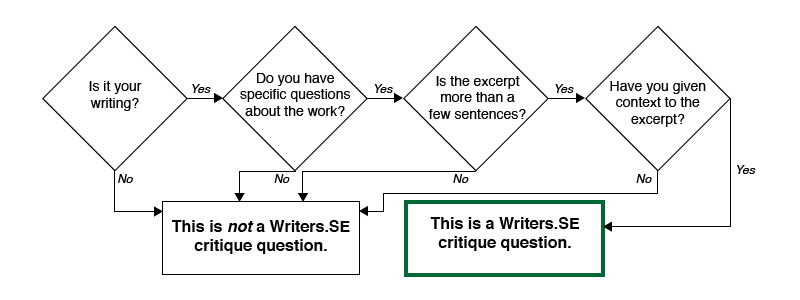Edit: This meta thread, while of historical interest, is no longer accurate: Critiques are no longer on-topic on Writers. (Anyone who wants to discuss, please comment on this more recent meta thread or create a new one.)
English Language and Usage keeps sending us brief, unanswerable questions that are asking for vague improvements. ("This sounds weird to me.") I'm sure they genuinely think that they're placing the questions where they'll get better answers, but these questions are unclear and partially off-topic here. They're sorta writing critiques, but sorta not.
I'd like to post in their meta, asking them to politely stop sending these here - or at least clean the questions up before they do. Unfortunately, our critique guidelines leave a bit to interpretation in these cases. Or maybe they're not being read.
I'd like to post a brief paragraph to meta.english saying, in polite terms, to please stop sending us questions that don't have much in the way of, well, specific questions about specific text presented in context. I personally consider the minimum for a critique to be a few paragraphs of text with specific questions about that text. However, let's discuss this!
My questions to all of you:
What is the minimum requirement for a critique here?
How can we make the critique guidelines easier to understand?
How does all this relate to EL&U's process? At what point would questions be considered off-topic there and on-topic here?
It's easy to say, "please stop sending us your garbage", but let's be polite and informative. The mods at EL&U are nice people, and these two sites are quite intertwined and we need to keep the relationship civil.
If any EL&U mods are reading this, I'd like to invite you to chime in with any questions you may have.

